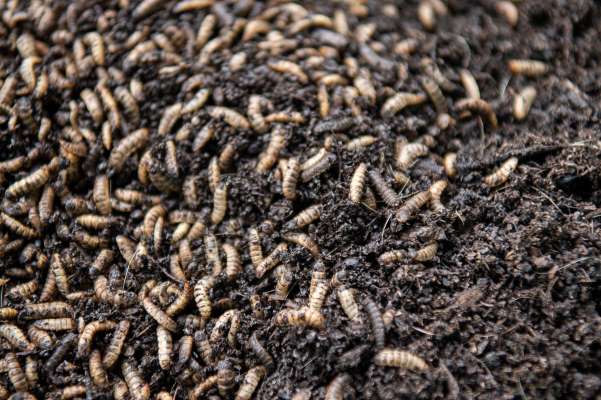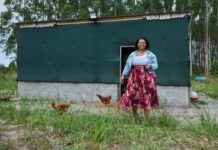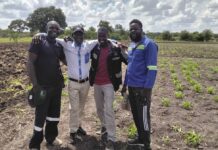The International Institute of Tropical Agriculture (IITA)-led “Black Soldier Fly (BSF) for Bio Circular Economy and Environmental Sustainability” (BBEST) project in partnership with the National Institute for Agronomic Study and Research (INERA) is empowering vegetable farmers in Kinshasa, the Democratic Republic of Congo by building their capacity on BSF-based organic fertilizer production.
Funded by the Norwegian Agency for Development Cooperation (NORAD), the project aims at equipping agripreneurs with knowledge on the production of organic fertilizer from the Black Soldier Fly residue (frass).
Already 50 people, including 24 men and 26 women have benefited from a hands-on practical training workshop which was organized on 6th January 2025 at the University of Kinshasa (UNIKIN).
The workshop first focused on rearing the black soldier fly (BSF) with a general overview of its origin and some fundamental characteristics of the species that make it a good candidate for rearing without risk for humans and animals.
This included explanations on breeding the black soldier fly where participants visited the black soldier fly larvae production unit to follow the different rearing stages, starting with the collection of waste and ending with obtaining the fly, including the collection of eggs, pre-pupae, and pupae.
The other bit was to help the farmers know how to use organic fertilizers from the larvae of the black soldier fly after decomposing organic wastes as an organic amendment to fertilize crops.
According to experts, the organic fertilizer, in combination with agroecological practices, makes it possible to grow healthier vegetables and reduce the ecological footprint.
Some of the agripreneurs who benefited came from the Agricultural Cooperative of the Center of Kimbanseke (COOPACEK), the Agricultural Cooperative of the Center Maraicher of N’djili (COOPACEN), the Association of Fish Farmers for Development in Congo (APIDEC) and Judith Farm.








